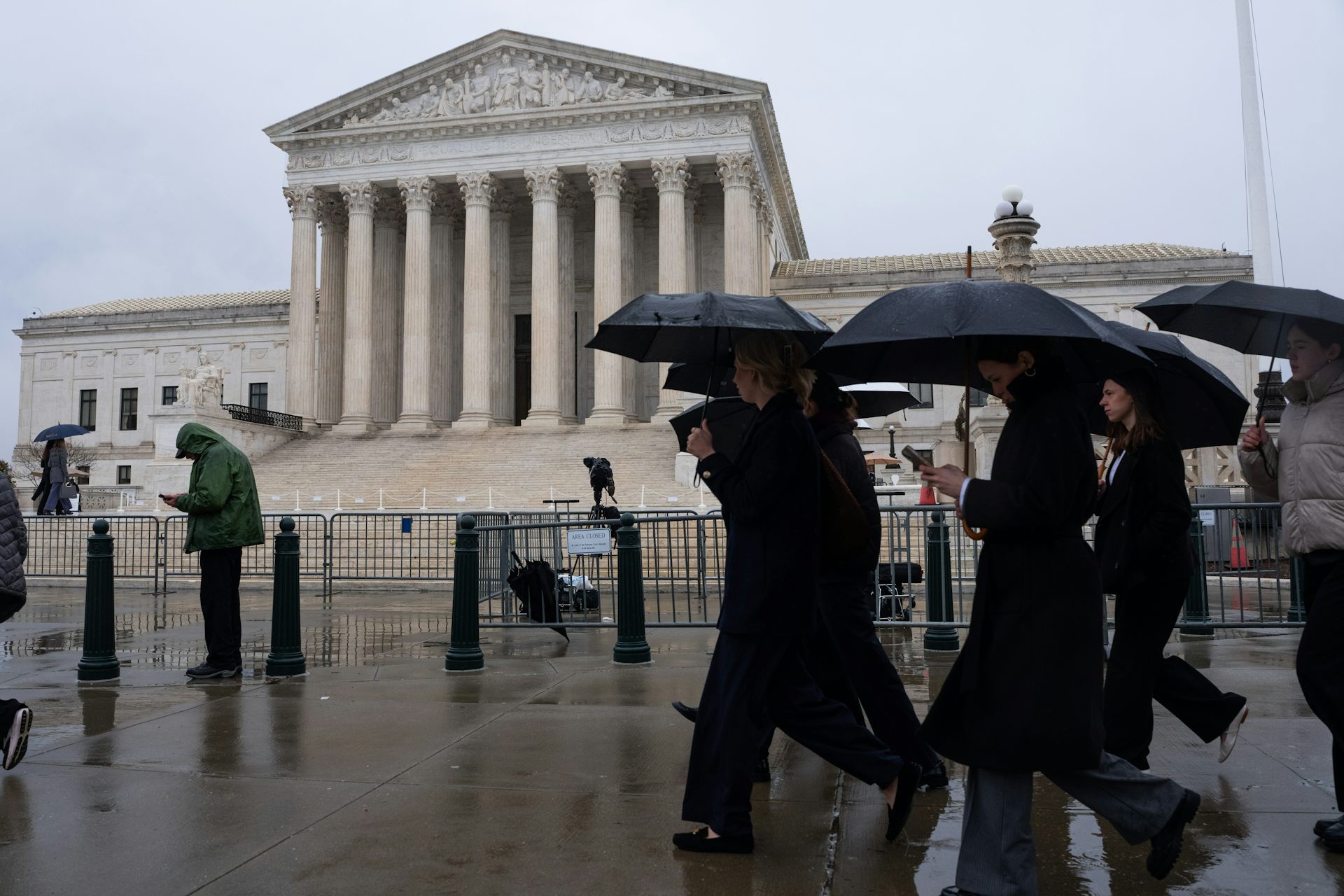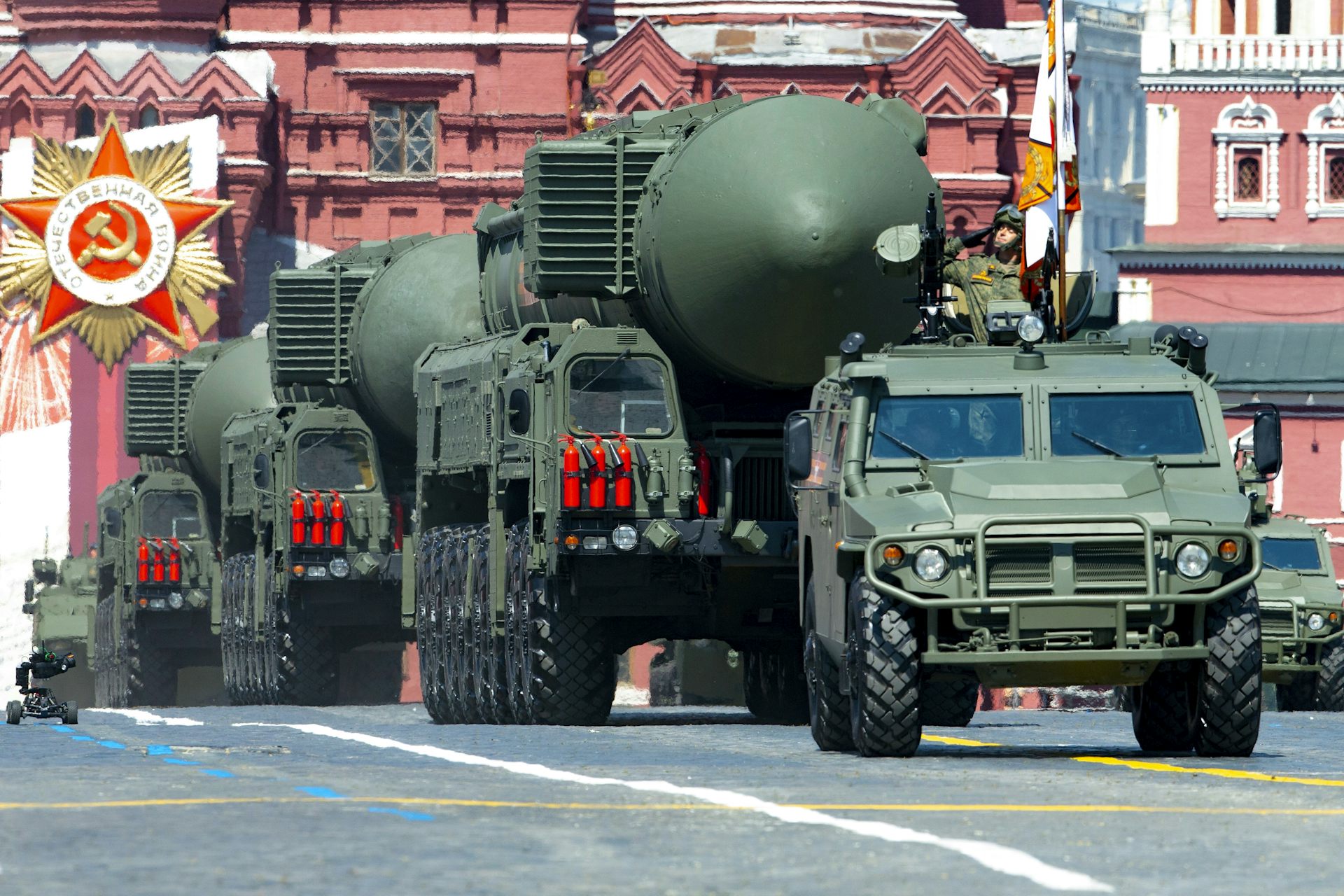Supreme Court rules Trump can rapidly deport immigrants to Libya, South Sudan and other countries th
A federal judge had previously blocked the Trump administration’s plans to deport immigrants to third-country destinations, but some of them have remained detained in another African county, Djibouti.
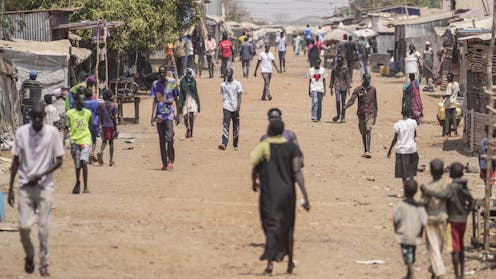
For the past several months, the Trump administration has been trying to deport immigrants to countries they are not from – despite an April 2025 federal ruling that had blocked the White House from doing so.
A divided Supreme Court decided on June 23, in a brief emergency order, that the Trump administration can, for now, legally deport immigrants to countries they were not born in – known as “third countries” – without giving them time to contest their destination. The third countries that President Donald Trump has recently prioritized, including El Salvador, South Sudan and Libya, are known for being dangerous places with weak rule of law and routine human rights violations.
The 6-3 decision did not specify a legal rationale for the ruling. The court’s three liberal justices, Sonia Sotomayor, Elena Kagan and Ketanji Brown Jackson, all dissented.
“Apparently, the Court finds the idea that thousands will suffer violence in farflung locales more palatable than the remote possibility that a District Court exceeded its powers when it ordered the government provide notice to the targeted migrants,” Sotomayor wrote in a 19-page dissent, joined by Kagan and Brown Jackson.
Understanding this legal case
The Trump administration asked the Supreme Court at the end of May to allow the rapid deportation of eight men who were convicted of crimes to South Sudan. Only one of those immigrants is from South Sudan, a politically unstable country in northeastern Africa. The rest are from Cuba, Mexico, Laos, Myanmar and Vietnam.
Brian Murphy, a federal judge in Massachusetts, had blocked those immigrants’ deportation to South Sudan on May 21, saying that this move violated his April 2025 court order. In that ruling, he stated that people being deported to third countries should have time to contest their destination if it might put them in danger.
The flight to South Sudan was rerouted to an American military base in the East African country of Djibouti, where the men are reportedly living in a converted shipping container while they wait to hear whether they will be deported to South Sudan.
Murphy also ruled in April that the Trump administration cannot send other immigrants to Libya if they are not foreign nationals of that North African country.
I study how restrictive immigration policies make people’s journeys into a new country dangerous and can harm their well-being. In that research, I have interviewed African migrants who have traversed the Sahara Desert, Libya and the Mediterranean Sea to reach Europe, where they seek asylum.
The White House has not explained why it wants to send immigrants to South Sudan or Libya.
Libya’s government has denied any direct coordination with the U.S. on this issue, and South Sudan’s government has said that any immigrants deported there with criminal records would be sent to their own countries.
But a May federal court filing said that Trump administration officials have tried to negotiate deportation arrangements with Libya and South Sudan that give the governments money or other benefits for taking in immigrants from the U.S.
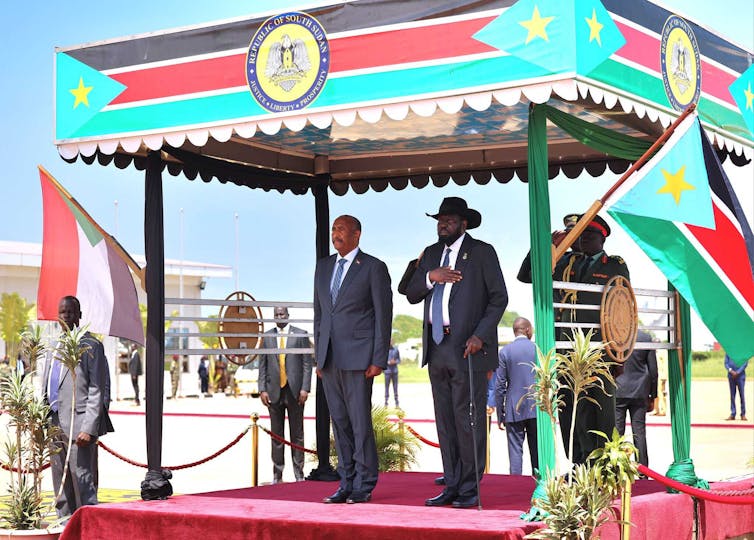
South Sudan’s shaky footing
Migrants can legally be deported to another nation when their country of origin refuses to repatriate them – though this practice is rare.
Former President Joe Biden, for example, deported Cubans, Haitians, Nicaraguans and Venezuelans to Mexico if it was politically or logistically difficult to repatriate them.
But the Trump administration is the first to insist on expedited removal of immigrants to countries outside of Latin America.
South Sudan became a country in 2011, when it split from Sudan after a decades-long war. Since then, South Sudan has been led by a single president – Salva Kiir – who has been described by international critics as authoritarian, meaning he tries to centralize his own power and limit other people’s political rights. In March 2025, Kiir oversaw the arrest of vice president and opposition leader Riek Machar.
Fighting between the government and opposition forces has prompted more than 2.3 million South Sudanese to flee to neighboring countries since 2013.
In 2025 alone, the country’s civil conflict has prompted more than 130,000 people to become internally displaced, meaning they were forced to leave their homes and live elsewhere within the country.
In March, Uganda deployed its troops to South Sudan to support the president, prompting concern of a full-scale civil war between forces backing Kiir and opposition forces. The United Nations then extended a U.S.-sponsored arms embargo in May to prevent weapons from reaching the region.
The conflict has also blocked the distribution of lifesaving aid, including food and other basic supplies, to reach people in South Sudan. About 57% of the country’s estimated 11 million people do not get enough food.
In March, the U.S. State Department ordered nonemergency U.S. government employees to leave South Sudan.
The State Department has also documented “significant human rights issues” in South Sudan, including threats to freedom of expression, as well as arbitrary arrests and detentions.
Libya’s danger for migrants
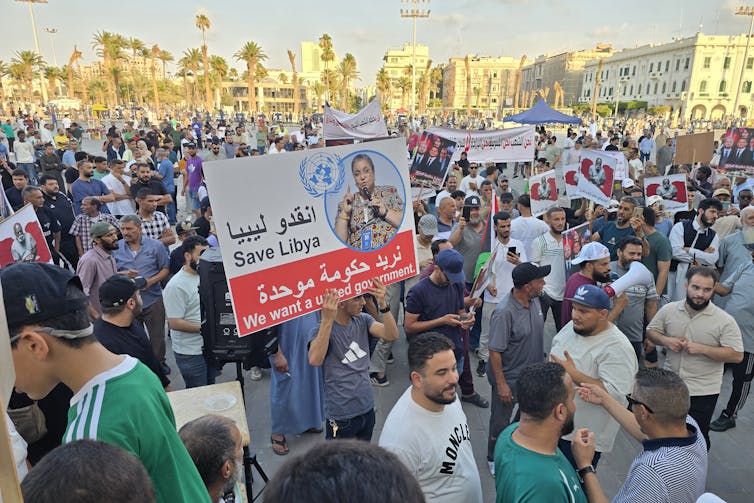
The Trump administration is also trying to send immigrants to Libya, which has not had a stable government since the U.S. and other countries supported the overthrow of dictator Muammar Gadhafi in 2011. Libya is currently ruled by two rival governments: the internationally recognized Government of National Unity in the country’s western region and the Government of National Stability in the east.
The U.S. has not had an embassy in Libya since 2014 due to unpredictable and unstable security there.
Armed militias control sections of Libya, and in some cases, they are also embedded as part of the governments.
Libya is a significant destination for migrants from countries throughout Africa and the Middle East who want to work in, or just pass through, Libya on their way north to Europe.
It is also a dangerous place for migrants. A 2023 U.N. fact-finding mission in Libya documented what migrants have long maintained in interviews with advocacy groups – they are regularly held for ransom by human traffickers, enslaved, and arrested and tortured in detention centers partly funded by Europe.
A mass grave found in 2021 near the village of Tarhouna contained the bodies of hundreds of locals who had disappeared under militia rule. In February 2025, the U.N. confirmed the discovery of mass migrant graves, with bodies showing signs of gunshot wounds.
In a May 2025 court declaration, Secretary of State Marco Rubio said that the injunction halting rapid third-country deportations threatens “a significant commercial deal to expand activities of a U.S. energy company in Libya.” In Libya, home to Africa’s largest oil reserves, U.S. companies are actively seeking to rekindle partnerships with the country’s national oil company.
In June, Trump included Libya on the list of countries banned from sending citizens to the U.S., citing the inability to “safely and reliably vet and screen” citizens from Libya and the other banned countries.
Other options for Trump administration
The U.S. is actively seeking additional countries it could send immigrants to in the future, even if they are not from those places.
Rubio issued a memo on June 14, about expanding the list of countries in the current travel ban against foreign nationals from 12 countries, including Libya. He noted that the 36 additional countries – mostly in Africa and including South Sudan – could mitigate the harsh policy by agreeing to accept immigrants from other countries who are deported from the U.S.
Eleanor Paynter does not work for, consult, own shares in or receive funding from any company or organization that would benefit from this article, and has disclosed no relevant affiliations beyond their academic appointment.
Read These Next
Supreme Court rules against Trump’s emergency tariffs – but leaves key questions unanswered
The ruling strikes down most of the Trump administration’s current tariffs, with more limited options…
After a 32-hour shift in Pittsburgh, I realized EMTs should be napping on the job
A paramedic and university professor shares data about how strategic napping could help his own health…
Enforcing Prohibition with a massive new federal force of poorly trained agents didn’t go so well in
Both Prohibition and current mass deportation efforts were hastily built, staffed by people permitted…


